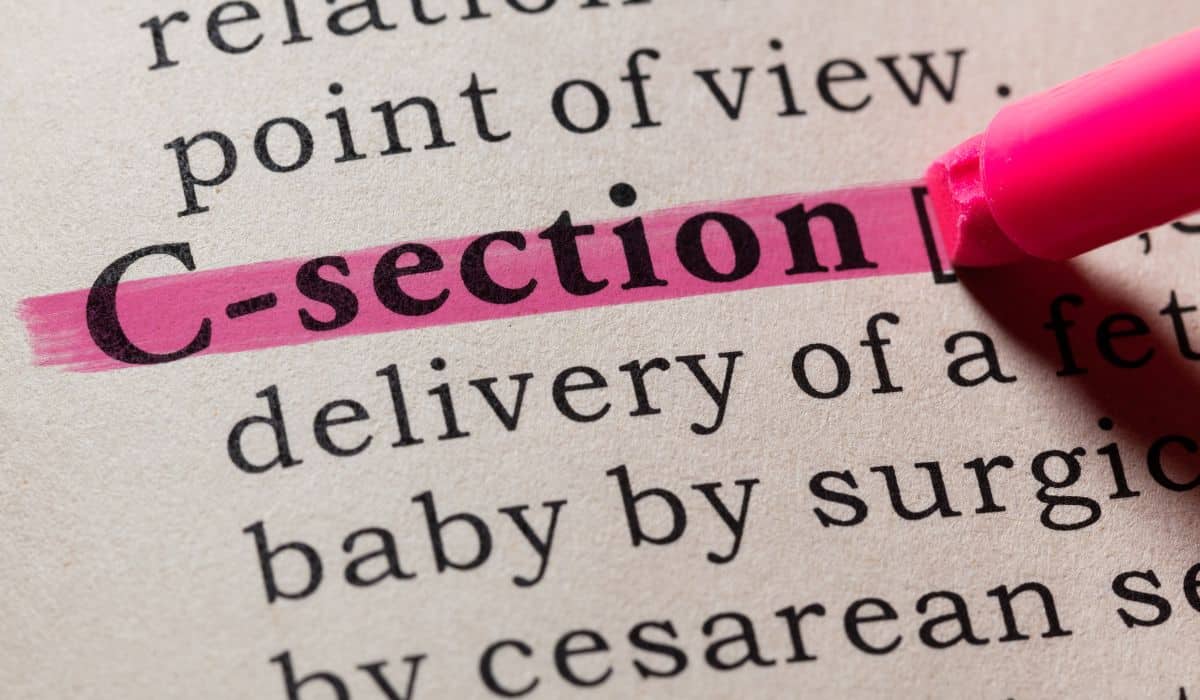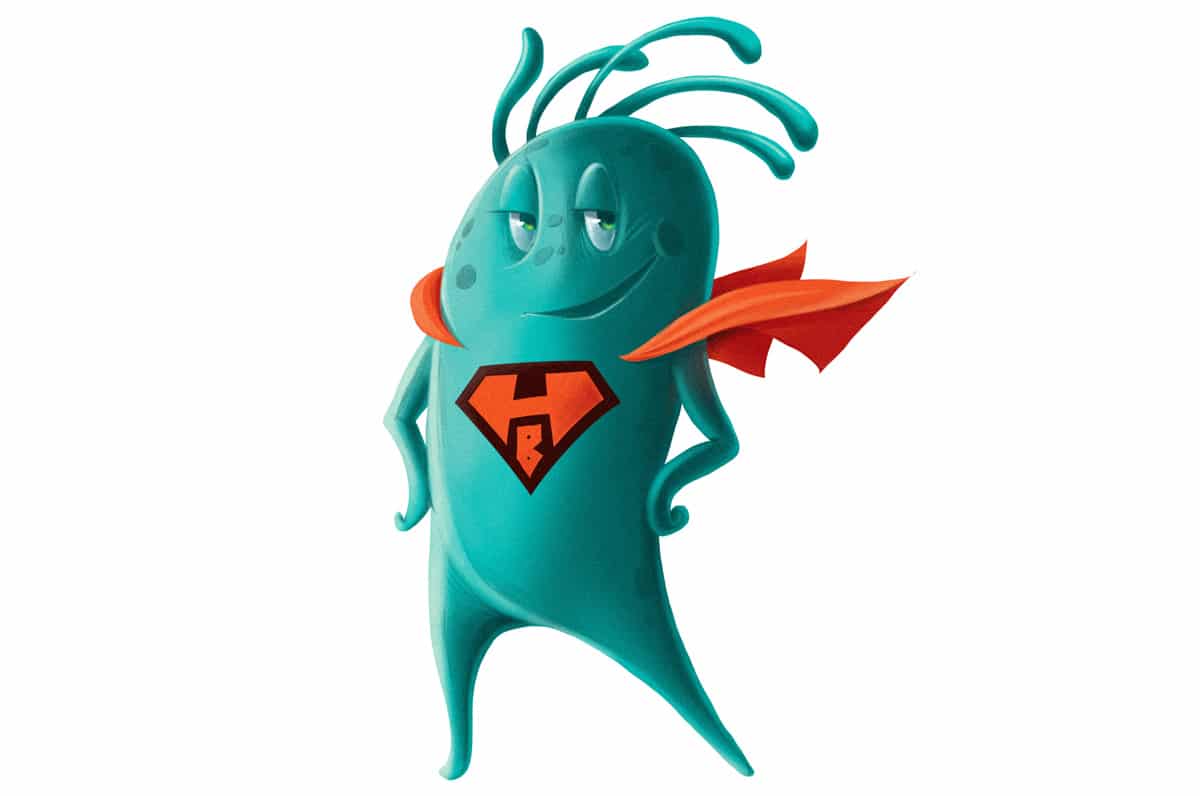
Paleo is all about what humans evolved to do and how we evolved to live. And childbirth is actually really interesting from an evolutionary perspective – partly because humans have it so bad compared to other animals. We have big heads to hold our big, meat-eating brains, which makes us adaptable and smart and everything but also makes childbirth a lot harder on our poor mothers. As far as anyone can tell, childbirth in the Paleolithic was extremely dangerous, just like it was everywhere before modern medicine, and just like it still is in places where modern medicine isn’t available.
Luckily some of those big-brained babies who caused so much trouble for their mothers grew up to invent medical procedures that reduced some of the dangers of childbirth. And one of those was the C-section. In a C-section, the doctor makes an incision on the mother’s stomach and removes the baby directly from the uterus. This can be a huge benefit for the mother and the baby. Just to take one example, a breech birth (the baby turned around so that its head is towards the mother’s head) can be dangerous or even deadly, but a C-section can make it a lot safer. Even with a midwife who is trained in breech deliveries, a C-section is still safer overall.
C-sections are probably performed more often than necessary today. But they do have real benefits for some women, and they do save lives. The point of this article isn’t to shame or judge women who have C-sections, or to imply that they’re “bad mothers” or selfish or anything like that.
But the fact remains that like so many other modern conveniences, C-sections do have their unintended downsides. On top of a higher complication rate (it is a major surgery!), C-sections also seem to put the baby at a higher risk of obesity, type 1 diabetes, and immune/allergic diseases later on, mostly because the C-section birth doesn’t kick-start the baby’s gut bacteria.
If you were born by C-section, or if you’re considering having a child by C-section, here’s what you should know.
C-Section Birth and the Gut Biome
Guess where baby’s very first gut bacteria come from?
Mom’s vagina. When a baby is born vaginally, bacteria from the inside of the birth canal stick to the baby’s skin and eventually colonize the baby’s gut. But with a C-section birth, this obviously doesn’t happen. Babies born by C-section do eventually get gut bacteria, but they don’t get the starter dose from their mothers on the way out. And missing that all-important first exposure to the mother’s bacteria might predispose the baby to obesity and allergic disease down the line.
C-Section Birth and Obesity
There are roughly fifty million* studies on C-section birth and obesity. There are a lot of confounding factors, but overall there does seem to be an association and it seems to be mediated through the gut bacteria. Or at least, nobody has come up with an explanation more plausible than the gut bacteria, and we’re probably never going to get a randomized controlled trial because what woman would sign up for a study where a computer got to pick at random whether she had to have a C-section or a vaginal birth? So a big pile of association studies is probably the best we’re going to get.
*Not really. But it’s a lot.
Here are the results from some of those studies:
- This study found that C-section birth was associated with a higher BMI by age 11, especially among children of overweight or obese mothers.
- Here’s another one finding that by early childhood, C-section delivery was associated with slightly greater odds of overweight.
- This study adjusted for maternal BMI and still found that babies born by C-section were more likely to be obese by age 3.
- And a review and meta-analysis from 2015 concluded that C-section increased risk of obesity for the baby even after controlling for the mother’s weight. The only explanation that the authors could come up with was the gut bacteria colonization theory.
If you were born by C-section and you’ve struggled with your weight since you were a child, it might have started in your gut. (And here are some suggestions for managing it)
C-Sections, Type 1 Diabetes, and Allergic Diseases
A review found that C-sections are associated with a 20% higher risk of Type 1 diabetes, and that the effect couldn’t be explained by any of the usual confounding factors. Type 1 diabetes is an autoimmune disease. It’s not like type 2, which is caused by diet and lifestyle. Type 1 is caused by a combination of genetic and environmental factors, often shows up in childhood, and isn’t strongly associated with obesity or eating sugar.
But it is, apparently, strongly associated with C-sections. And the cause seems to be the gut bacteria again. The authors of the review above noted that gut bacteria are huge for the normal development of the immune system, so if C-sections mess up the normal composition of the gut bacteria, they might cause problems with the immune response and ultimately cause autoimmune diseases like Type 1 diabetes. This is supported by the finding that children born by C-section do have measurably different immune responses.
C-sections may also be associated with a higher risk of other allergic and autoimmune diseases, including asthma and allergic rhinitis. This would also be an expected result if C-sections messed with the baby’s gut flora.
Benefits of C-Section Birth?

So C-sections might save some lives at the cost of a slightly higher risk of obesity and immune-related diseases for the baby. Given the choice between serious risk to the baby’s life with a vaginal birth and a slightly higher risk of weight gain with a C-section, most people would probably still go for the C-section. But there might even be a way to turn the effects on the gut bacteria to the baby’s advantage.
Passing down the mother’s gut bacteria during birth is good for the baby…if the mother has healthy gut bacteria. But that’s not always the case. For example, there appears to be a pattern of gut bacteria specific to obesity, and those bacteria might help keep obesity in place (for example, by digesting food more efficiently so you get more calories out of it). This study found that obese mothers who give birth vaginally can pass down the obesity-associated gut bacteria to their children. But obese mothers who give birth by C-section don’t. That difference persists at least into toddlerhood.
So C-sections might theoretically be a way to prevent mothers from passing down any problems with their gut bacteria to their children. That still doesn’t solve the problem of giving the baby some kind of bacteria to start off with, but science might be coming to the rescue there, too!
A new study found that babies don’t have to literally pass through the vaginal canal to get the bacteria from it. A doctor can just literally take the mother’s vaginal fluids and put them on the newborn and it seems to do the same trick. The first study trying this was just published in March of 2016, so it’s not clear how this affects the baby’s lifetime risk of obesity or anything else.
So, are we headed into a shining new age of gut biome medicine where mothers get their bacteria tested before childbirth and then babies can either be delivered vaginally (for mothers with good bacteria of their own) or delivered by C-section and started off with someone else’s “good” bacteria? That day is a long way coming, if it’s coming at all, and obviously there are a lot more considerations that go into vaginal vs. C-section birth than just the baby’s gut bacteria. But given that a certain number of C-sections will probably always be inevitable, an option for post-birth colonization with the proper bacteria is interesting and promising.
Summing it Up
If you were born by C-section, you’re at a slightly higher risk of obesity, Type 1 diabetes, and possibly other allergic/immune-related diseases. Of course, plenty of C-section babies go on to be perfectly healthy, and plenty of babies born vaginally go on to be sick, so neither of these is a guarantee of anything. But it’s probably less than ideal. (Again, no judgement on the women who choose C-sections; there are good reasons for having one and in any case it's a decision between the parents and the doctor, not something for random internet strangers to shame each other for).
On the other hand, there might soon be a way to avoid this problem completely, and even to make deliberate decisions about colonizing babies with the best gut bacteria for their health.





Leave a Reply